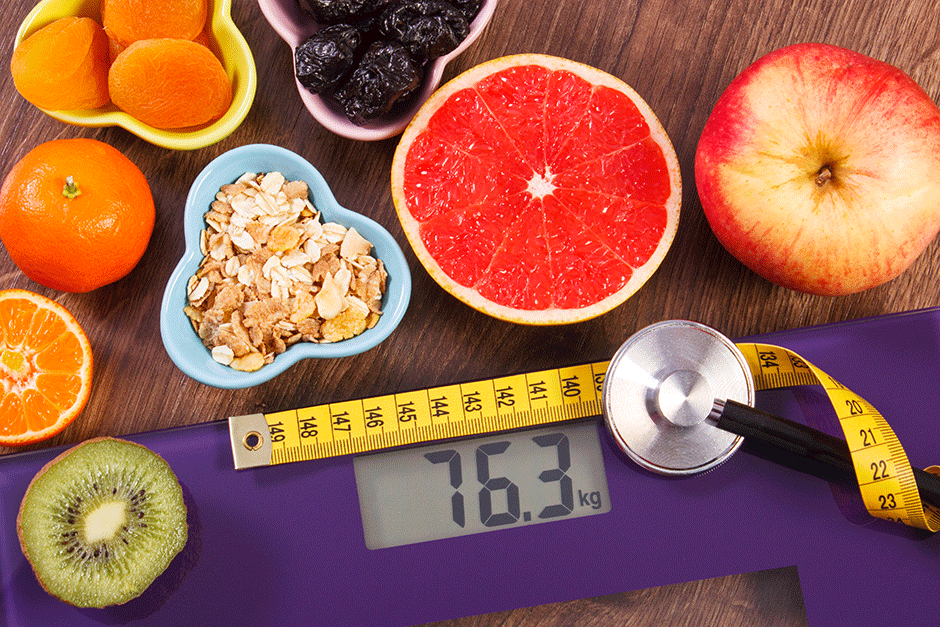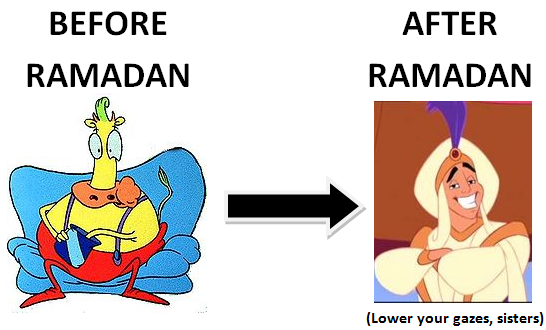
Gladsomeoness is in the air, as the holy month of Ramadan begins with a lot of zest and diligence among the devotees. This month-long festivity ends with the celebration of Eid, which is all about spreading happiness and togetherness, and certainly, you can never think of celebrations without loads of good food.
The month often begins with optimistic energy, and practitioners may set many spiritual goals. However, one is likely to get cold feet as he/she tries to maintain his/her health while fasting and balancing their regular day-to-day responsibilities.
It has been observed that Muslims tend to gain weight during this month despite fasting an average of 12 hours a day. Conceivably the only reason that appears to be logical here is a higher calorie intake and a relatively primeval use of physical activity.
The calories then stack up while the body makes the least effort to use those calories and the weight gains. The vast majority of food choices, their easy accessibility at supermarkets, overeating during the non-fasting time, and most importantly disruptive sleep cycle of the day contribute significantly to this quick weight gain.

Following are the tips to shed those extra kilos, in Ramadan.
Follow Portion Control
The most effective key to weight management is to avoid overeating, as simple as that. What normally turns healthy people into obese is ignorance over the amount of food consumed. Hence, the best thing to follow is to prepare small portions, this way you can relish every delicacy but in moderation, which doesn’t lead to weight gain. The reason why the small portion technique is effective is that it allows the practitioner to taste most of what has been served while making sure that those portions never exceed their set quantities. This way the consumed calories and carbs can be easily monitored and calculated which would eventually help in stabilizing the weight rather than allowing it to gain.

Find Healthy Meal Alternatives
Another important way of reducing the calorie content in the food is by choosing a healthy way of cooking. Many people around the world prepare fried and rich meat delectables for iftar and this leads to more weight gain. Thus, going for other modes of cooking like roasting, grilling or baking can help in reducing the calorie count of food that you eat. Possibly any way of cooking that helps you cut the oil content and is relatively clean from heavy amounts of fat is a healthy way of cooking. All these modes of cooking mentioned in this para are legitimately the best ways to adopt a healthier and more fit lifestyle.

Include Physical Activity; Brisk Walking
It’s essential to start with light physical activity every day, for example, 10 to 15 minutes of low-intensity exercises such as walking. Avoid high-intensity-interval exercises like sprinting or lifting heavyweights. You can still improve your stamina and fitness with regular walks and jogs. Walking is the easiest form of exercise, you’re still getting fit and you can walk at your own pace for as long as you want, while every single step that you take, pushes your body towards its betterment. Even if you want to continue to hill walk, choose lowland hikes and ensure you take lots of little breaks to maintain your breath while completing more and more steps every single day. Each step burns a certain amount of calories and in turn, makes you more fit.

Limit Sugar Intake
Ramadan is a good time to test your patience and cut down on sugar-rich feasts as well as your calories. Many processed packaged foods and drinks contain high amounts of sugar. Swap your sugary breakfast cereal and your delicious iftar sweets with fruits of all kinds including dried as well. If you can’t resist, then eat a small portion. Sweet foods made with honey or sugar-soaked fruits and nuts are okay to some extent but sweet foods will also vary in levels of fat and sugar.

They tend to be rich in calorie count regardless and with Ramadan’s hectic schedule there is no time to burn those calories off. So during Ramadan consider reducing the foods that are less nutrient-dense such as sweet foods. After breaking fast it is common for people to feel bloated or very full very quickly.
Therefore, consider the types of foods you consume a lot and how nutritious they are. It is recommended to fill yourself up first with nutritious foods such as fruits and vegetables, wholegrain or high-fiber starchy foods, healthy fats, and good sources of dairy or dairy alternatives.
Keep Yourself Hydrated
Staying hydrated is one of the main considerations for people who are fasting, as ensuring we drink enough water is vital for proper nutritional function. About 60 to 70 percent of the human body is made up of water, which carries oxygen and vital nutrients to our cells. Among other things, this also helps to regulate body temperature. Fasting for more than an average of 12 hours a day can lower the fluids in a human body by significant levels.

Researchers across the globe suggested that the best way to guard yourself against dehydration in Ramadan is by consuming adequate amounts of water before suhoor and after iftar, while strictly limiting the amount of water we lose in between fasting. To preserve the fluids in your body more efficiently, some researchers have also suggested cold showers as a quick remedy since it helps in lowering the overall body temperature and helps avoid excessive sweating.



